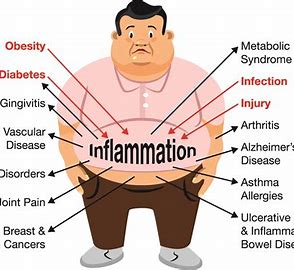Stress is an inherent part of human existence, serving as a natural response to challenging situations. However, when stress becomes chronic, persisting over an extended period, it can have profound effects on both mental and physical well-being. Chronic stress is more than just a fleeting feeling of pressure; it’s a persistent state that can deeply impact every aspect of a person’s life.
What is Chronic Stress?
Chronic stress is characterized by ongoing feelings of tension, worry, and pressure that persist over an extended period. Unlike acute stress, which is short-term and often linked to specific events, chronic stress can linger for weeks, months, or even years. It can result from various sources, including work pressures, financial difficulties, relationship problems, or ongoing health issues.
Effects on Mental Health
One of the most significant impacts of chronic stress is on mental health. Prolonged exposure to stress hormones like cortisol can disrupt neurotransmitter balance in the brain, leading to mood disorders such as anxiety and depression. Chronic stress can make it challenging to concentrate, make decisions, or cope with daily challenges, affecting overall cognitive function.
Impact on Physical Health
The toll of chronic stress isn’t limited to mental well-being; it can also take a significant toll on physical health. Research has linked chronic stress to a range of health problems, including:
- Cardiovascular Issues: Chronic stress can contribute to high blood pressure, heart disease, and an increased risk of heart attacks or strokes.
- Immune Suppression: Prolonged stress weakens the immune system, making individuals more susceptible to infections and illnesses.
- Digestive Problems: Stress can disrupt digestion, leading to issues such as irritable bowel syndrome (IBS), ulcers, or exacerbating symptoms of existing conditions.
- Musculoskeletal Pain: Chronic stress often manifests as tension in the muscles, leading to headaches, back pain, and other musculoskeletal issues.
- Sleep Disorders: Difficulty falling asleep or staying asleep is a common symptom of chronic stress, which can further exacerbate both mental and physical health problems.

Signs and Symptoms of Chronic Stress
Recognizing the signs of chronic stress is crucial for managing its impact on overall well-being. Some common symptoms include:
- Persistent Worry: Excessive worrying about various aspects of life, including work, finances, or relationships.
- Irritability and Mood Swings: Feeling easily agitated, impatient, or having sudden mood shifts.
- Physical Symptoms: Headaches, muscle tension, stomach issues, and other unexplained physical symptoms.
- Fatigue: Feeling tired or exhausted even after adequate rest, often due to disrupted sleep patterns.
- Changes in Appetite: Overeating or loss of appetite can be indicators of stress affecting eating habits.
- Difficulty Concentrating: Trouble focusing, remembering things, or making decisions.
- Social Withdrawal: Avoiding social activities or isolating oneself from friends and family.
- Increased Substance Use: Turning to alcohol, drugs, or other substances as a coping mechanism.
Managing Chronic Stress
While chronic stress can feel overwhelming, there are strategies to help manage its effects and improve overall well-being:
- Stress Management Techniques: Practices such as mindfulness meditation, deep breathing exercises, yoga, or progressive muscle relaxation can help reduce stress levels.
- Healthy Lifestyle Choices: Regular exercise, a balanced diet, adequate sleep, and limiting caffeine and alcohol intake can support physical and mental health.
- Time Management: Prioritizing tasks, setting realistic goals, and learning to delegate responsibilities can help reduce feelings of overwhelm.
- Seeking Support: Talking to friends, family members, or a mental health professional can provide valuable support and coping strategies.
- Setting Boundaries: Learning to say no to additional commitments and establishing boundaries in personal and professional life can help prevent overwhelm.
Conclusion
Chronic stress is a pervasive issue with far-reaching implications for mental and physical health. Recognizing the signs and symptoms of chronic stress is the first step toward managing its effects and improving overall well-being. By implementing stress management techniques, making healthy lifestyle choices, and seeking support when needed, individuals can better cope with the challenges of chronic stress and lead healthier, more balanced lives.


